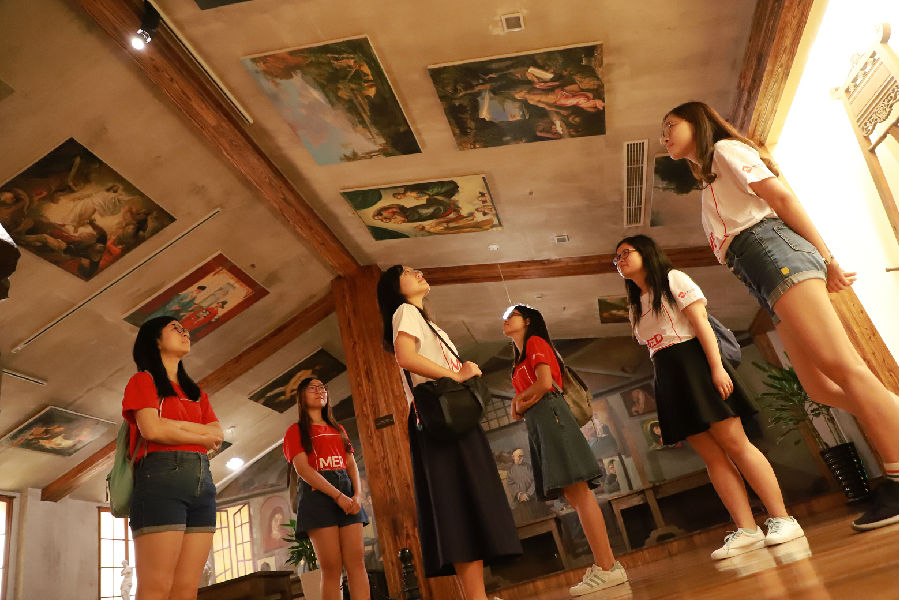2018 Museum Exploration Program
2018年07月30日

This summer’s Museum Exploration Program (MEP) is its fifth session starting from 2014. MEP is a collaborative project designed by Qian Xuesen Library & Museum and Office of Hong Kong, Macao and Taiwan Affairs of Shanghai Jiao Tong University. This five-week residency program is tailored to Hong Kong university students who have strong enthusiasm for museum sector or Chinese traditional culture. High-calibre students will be exposed to various types of museums and historical sites in Shanghai and across mainland China. Under the supervision of the exhibition curator at Qian Xuesen Library & Museum, students will also curate, design, produce and display an exhibition of their own in the end of the program.
Six students are enrolled in this year’s program. They are from University of Hong Kong and Lingnan University, with majors mostly on Chinese literature and Chinese history. This year’s four-week program comprises of three-week internship in museums across Shanghai and one-week outing to museums and historical sites in Beijing and Henan Province.
Five residency museums host the six students for their internship, with positions ranging from collection digitalization to audience engagement, covering almost all aspects of a museum’s daily work. The five host museums and internship positions are:
Museum educator planner, Qian Xuesen Library & Museum
Museum educator, Liu Haisu Art Museum
Museum interpreter, T’ou-Se-We Museum
Collection management, Shanghai Museum of Arts and Crafts
Audience engagement, Shanghai Film Museum
This year’s exploration of museums and historical sites are focused on the two capital cities in China’s history: Luoyang and Beijing. Located in Henan Province, Luoyang used to be the capital city of 13 dynasties while Beijing was the capital city of Ming and Qing dynasties as well as the modern China. The two highlights of Beijing’s university museums are Arthur M. Sackler Museum of Art and Archaeology at Peking University and Tsinghua University Art Museum, with the former as the academic backbone of China’s archaeological history and the latter one of the most dynamic emerging university museums in China. Visiting museums and historical sites in both cities is an intimate experience for students to enter into the dialogue with the past. Observing the real objects and breathing the local air provides a further, physical connection to the history.
